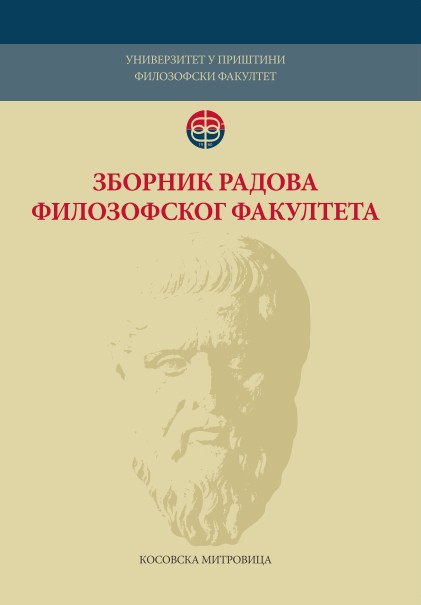Социјална улога рада у Сорокиновом учењу о цикличном схватању историје
The social role of war in Sorokin's cyclical conception of history
Author(s): Zoran D. NedeljkovićSubject(s): Sociology, Philosophy of History, Peace and Conflict Studies
Published by: Филозофски факултет, Универзитет у Приштини
Keywords: culture; ideational-sensate-ideatic phase; sociocultural process; cyclical conception of history; war; conflict; value
Summary/Abstract: The paper reviews Sorokin’s cyclical conception of history through relevant literature. The social role of war is analysed, in accordance with Sorokin’s understanding of the three cultural types (sensate, idealistic, and ideational) which alternate through the history of mankind. Due to the fact that war as a social phenomenon depends on the cultural style that is dominant at a given moment in history, its social role changes as well, manifesting as a regress or progress in sociocultural process. Sorokin ascertains that we can notice the decrease in values of the dominant sensate culture in the twentieth century in all aspects of life. By examining Sorokin’s sociology of war, the author concluded that war lost the meaning it had for mankind due to the acceleration of military-technological development and that by being estranged from it, it became its own cause, turning into a conflict that may or may not lead to war. Such a conflict as a surrogate of war, that Sorokin hadn’t predicted, has no social role but leads to a destruction of civilization.
Journal: Зборник радова Филозофског факултета у Приштини
- Issue Year: 47/2017
- Issue No: 2
- Page Range: 243-261
- Page Count: 19
- Language: Serbian

